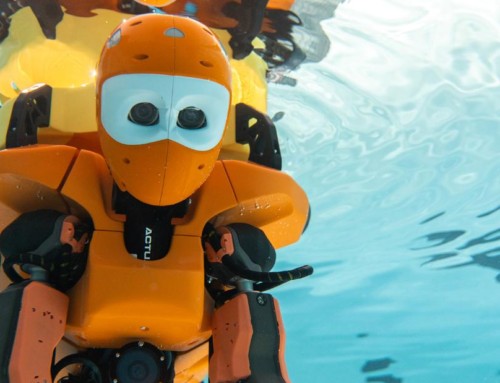[ad_1]
It wasn’t so long ago that consumer robots were destined to be the next big thing. But that optimism hasn’t translated into consumer sales. The result: Jibo was sold for parts.
Don’t remember Jibo? It was one of the first social robots. The founder, MIT roboticist Cynthia Brezeal, was a favorite of tech media. Jibo even made the cover of Time magazine in 2017 and was listed as one of the 25 best inventions of the year. The $900 robot was delayed many times and at one point had to refund the money of early crowdfunding backers. It did come to market in late 2017, but it didn’t sell.
This past summer, the company laid off its staff, shut down production and sold its intellectual property. Jibo isn’t the only robot that headed to the scrap heap in 2018. Another robot named Kuri, made by a division of Bosch, won an innovation award at the 2018 Consumer Electronics Show. By summer, the product was canceled.
So, what happened here? How were prognosticators so wrong about robots? Well, over the past four years we have seen the rise of headless robots.
We know them as smart speakers like Amazon Echo and Google Home. Whereas Jibo and Kuri could play music, answer some questions and set a timer for about $800 or $900, an Amazon Echo Dot or Google Home Mini can do those same things and much more for under a $50 list price (and are available for about $25 when on sale). You don’t need a robot to follow you around the house if you can place a $25 smart speaker in every room.
The question for consumer robot makers is what is the rationale to own one? Animated facial expressions don’t actually rise to the level of must-have technology. Smart speakers address many needs more efficiently than robots or smartphones.
In some ways, smart speakers can help facilitate robot adoption because the devices will help consumers become accustomed to speaking to technology to get information and perform tasks. That’s the type of behavior change required for consumers to become comfortable with robots.
However, smart speakers also perform many of the functions consumer robots hoped to provide. So, robots need to identify new use cases that they are uniquely designed to address.
One example is the robot vacuums.
You may be familiar with the Roomba and Neato Botvac. These are popular with consumers, in part, because they perform a useful function that other devices do not. They also integrate with smart speaker voice assistants like Alexa and Google Assistant to offer voice control.
So, the future of consumer robots may not be for general-purpose tasks or even social interaction. Instead, single-purpose robots are more likely to succeed and coordinate their activities with Alexa, Siri and Google Assistant, each of which can inhabit any device.
Bret Kinsella is Founder and Editor of voicebot.ai, a source of voice assistant and AI research, news and analysis.
Read or Share this story: https://www.usatoday.com/story/tech/talkingtech/2018/12/13/consumer-robots-dead-long-live-alexa/2272460002/
[ad_2]
Source link






Leave A Comment
You must be logged in to post a comment.